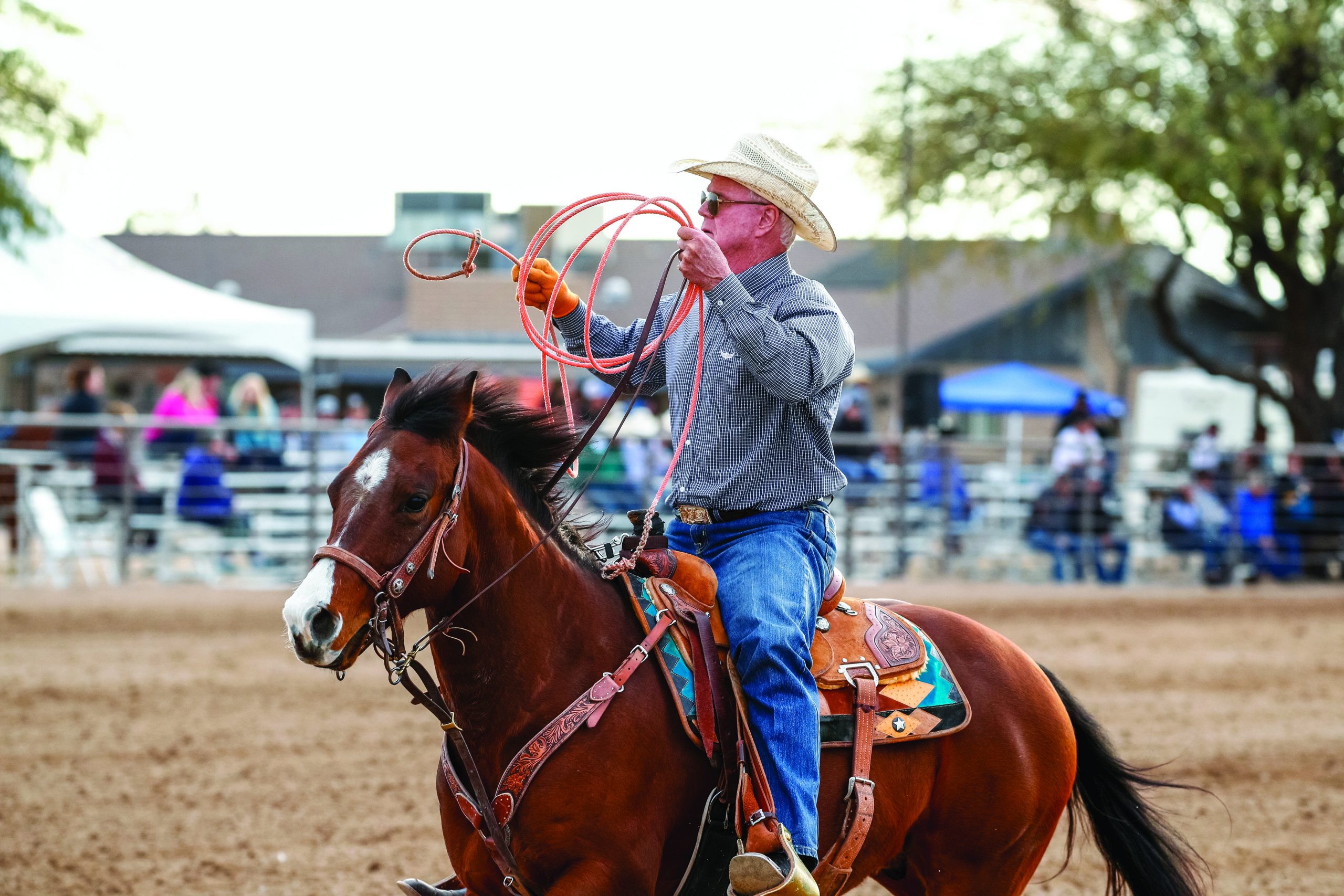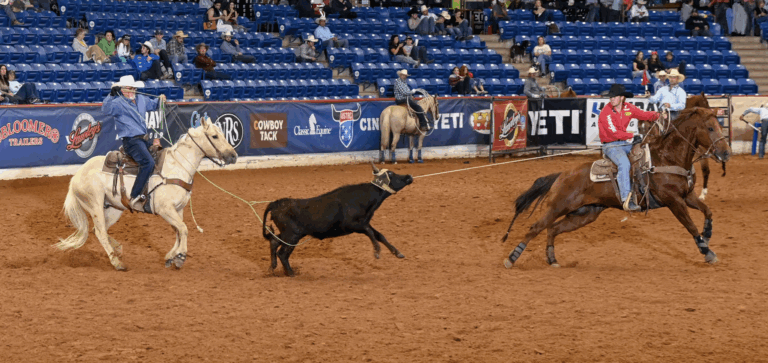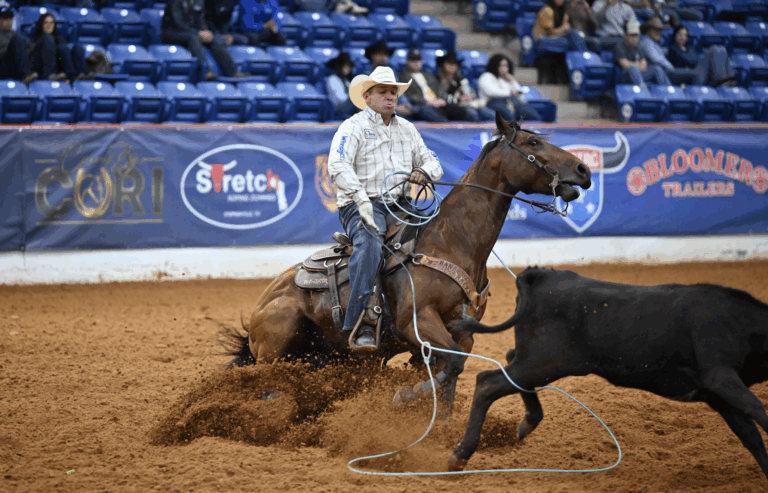Denny Gentry, 67, is team roping’s Godfather. And with the turn of calendar year come Jan. 1, 2020, Gentry will step away from the leadership role he’s held in this sport for the last time as the National Team Roping’s Ty Yost takes his place. The founder of the USTRC and the World Series of Team Roping and the director of roping operations for Active Interest Media, Gentry is a workaholic with a knack for brutal honesty and a business sense second to none. He leaves in place an infrastructure that will continue to grow the sport, thanks to the work of the entire Gentry family and the connections they’ve made. Before I let him off the hook, though, I asked for one last interview (as my boss, that is) to look back on his career and look forward on his future.
Q: Thirty years. Was this a vision from the start, or a happy accident that snowballed and became a larger-than-life phenomenon?
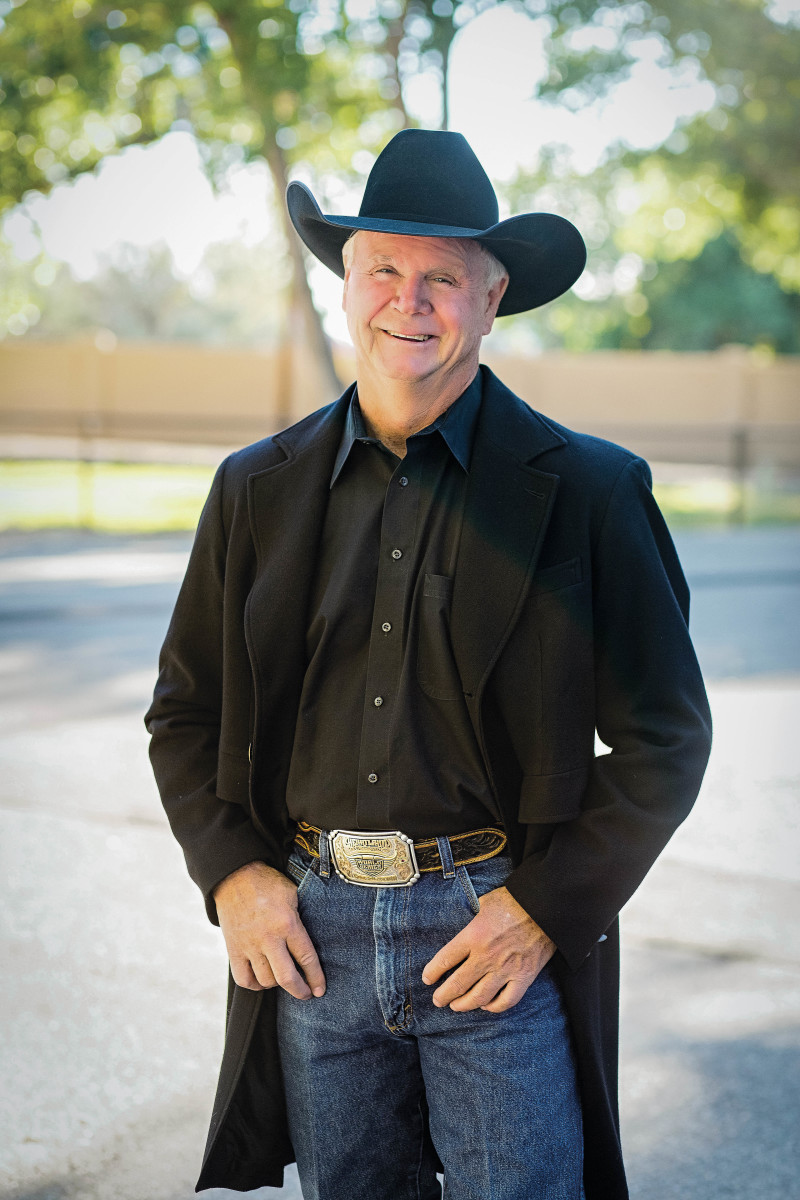
A: All of the above: a dream, multiple circumstances, that just snowballed.
Q: I’ve heard from mutual friends of ours about the boating accident that almost took your life, but I don’t feel like a lot of ropers understand how that affected who you are and the sport of team roping. Do you care to tell ropers about it?
A: When I was 25 years old, I had an accident that was a game changer for me, and it eventually impacted the roping business. The severity of the wreck had a half-dozen doctors talking about amputation of my arms but, by the grace of God, I got to keep them with a permanent disability at both elbows. Eventually, I would want to rope again, but I had to break down and admit that I was handicapped. The way I accepted that was by realizing that people are all handicapped in some way, all different; they come in every shape, size and situation. Very few have the ability or life situation to make roping, golfing or any pastime the central focal point of their life. We all want to be the best we can be, or do the best we can do, given our personal situation at that place and time in our lives. I realized that everyone’s “best” can be completely different, and that’s okay. We don’t have to apologize for it.
Q: You’ve brought your entire family along for the ride. How have your kids grown up in the sport, and what are their roles today?
A: It was all they heard, morning and night. They were our temporary work force during middle school and high school. Lacee is our oldest, and she took another job after college, but we eventually brought her back to the business. She has been with the company 10 years and is the creative/marketing director. Audra has been with us nine years and handles media/communications. Audra moonlights as a high school volleyball coach and has been coach of the year twice in New Mexico. Lucas is our youngest, and he is in college in Texas, but we pull him back in as much as possible. He is one of the barn managers at the Finale.
Q: Your wife, Connie, remains influential in the World Series and USTRC going forward. How will that work?
A: The company figured out early on that she was the essential element, and when Ty decided to accept the position, he asked her if she would stay and help him with the transition. I don’t think any of us know how long this transition will be. So I think team roping will still remain the primary area of discussion at the house until she is done.
Q: There’s always talk about how roping has changed over the three decades of your career and beyond. But how have the ropers themselves changed, as well as their attitudes toward the sport—particularly with the advent of social media?
A: They won’t drive as far because they have so many options. I think we might have corrupted them a little and given them expectations that are way too high. The first years of USTRC, ropers were actually giddy over roping in ropings the size of our current-day qualifiers. USTRC’s Cinch National Finals of Team Roping just completed in Oklahoma City, and I actually heard ropers complaining about really good ropings, not because anything was wrong, but they just didn’t compare to the old days. I see people comparing roping payoff with drastically different entry fees. Every roping needs to be judged and enjoyed for what it is. I heard of a few lady ropers who walked away from the Ladies’ roping because it had less than 50 teams, $2,000 added to the nose, tons of prizes, paying $9,000 to win, saying “Naw, ain’t worth entering.”
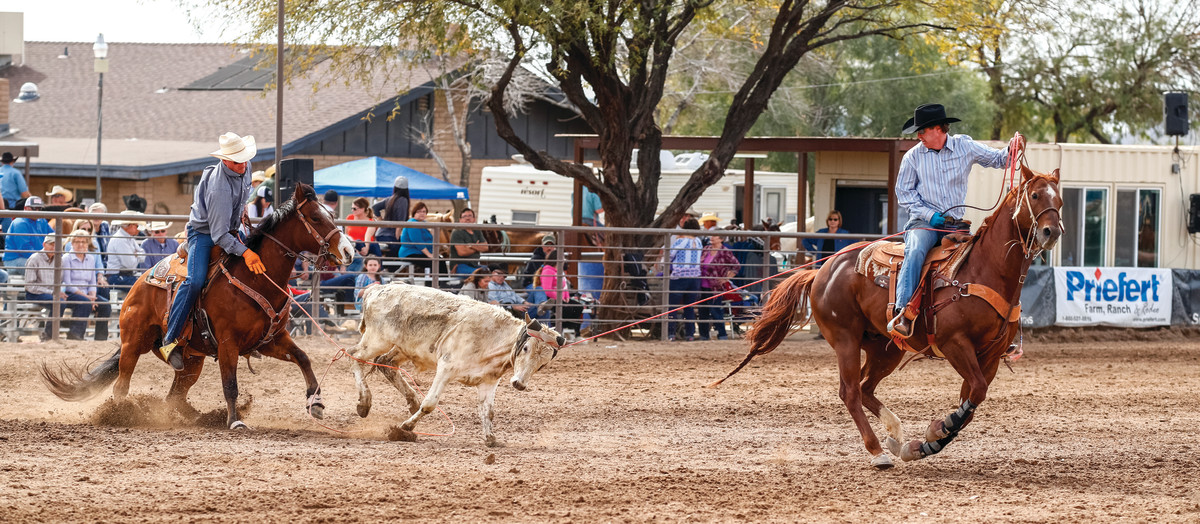
Last March, we awarded $500,000 at AT&T Stadium in one division of the American Cowboy. That was done on a $200 entry fee and it didn’t even raise a buzz in the industry. It’s really our fault for always hyping everything to be bigger and better. The million-dollar ropings have really changed expectations. I don’t know how the associations are going to live up to their own success.
The social media thing is another matter. Cowboys as a rule hate change, and change has been what we have always been about. So, every time something changes, it will generate lots of chatter. I see these posts on social media about how the WSTR barrier or the price of entry fees or this or that “ruined” team roping. Nine times out of 10, these proclamations are made by people who weren’t even born when we started and don’t have a clue what team roping used to look like before team roping became the hot ticket. Team roper jokes were as common as lawyer jokes, and that’s not true anymore. We are a $70-million to $100-million industry that multiplies five to 10 times into a support economy. We didn’t ruin anything. Social media can create great problems because it instantly perpetuates, legitimizes and spreads perceptions to people that don’t know any better.
You may have a beginner’s posts shared as much as high-number ropers. The upper-number guys are really influential, and I have tried to encourage them to think more long term with their posts and comments about specific issues. Their point of view is not going to be the same 20 years from now. Endorsees are signed to help sell products to recreational ropers. They train horses they sell to recreational ropers. They are able to make a living by putting on roping schools, and many will retire to jobs with these companies that support recreational roping. So I remind them that their opinions do matter and they can neutralize the negative stuff when it goes viral. I think they have the ability to be a real positive force if they want to be.
Q: We do a lot of coverage of professional team ropers and are very aware of the difference between rodeo and jackpot team roping. You have always been quick to differentiate between the two, and to make sure I was, too, when planning this magazine. Where do you stand on that?
A: I’ve changed my opinion over time, and I quit saying they are two different things. I don’t see it as separate anymore. Team roping is a recreational industry, rodeo roping is just a very small division of the overall. I think the dream to be the best still drives everyone to achieve at every level. But the professionals themselves talk about the fact that, in any given year, only roughly a dozen have to pay taxes. The IRS considers everyone else hobby ropers, and that runs from 1’s all the way to 10’s. The home-school-to-rope plan does occasionally work, but it’s like buying lottery tickets as a retirement plan. Making a living with a rope is obviously possible, and you have to admire the kind of talent that can do it, but the roping pyramid is large at the bottom and the tip is just too sharp at the top.
Q: Do you have any regrets as far as your career is concerned?
A: I was a little burned out when we sold out the first time and thought I wanted to do something different. I liked what we were doing, but it was like being a politician. The scrutiny was intense, and I broke and ran. But in the end, I couldn’t escape team roping. We are who we are, and I resolved myself that this was what Connie and I were meant to do. I have never regretted the decision to come back.
Q: What about in your personal or business relationships?
A: My intent for the sport was always good, but that doesn’t mean there are no regrets. You try to ignore the negative pushback, but that is impossible sometimes. You can’t put yourself out there in front of thousands of people over a long period of time and expect to walk away unscathed. We have had literally hundreds of business transactions, and thousands of personal interactions with ropers. The majority resulted in great personal relationships that will last forever. I don’t regret the business deals that went south, just those that were allowed to get personal. It was a problem every single time emotions were allowed into the equation. I got better about that as time passed, but I’m human, and I regretted every time it got away from me.
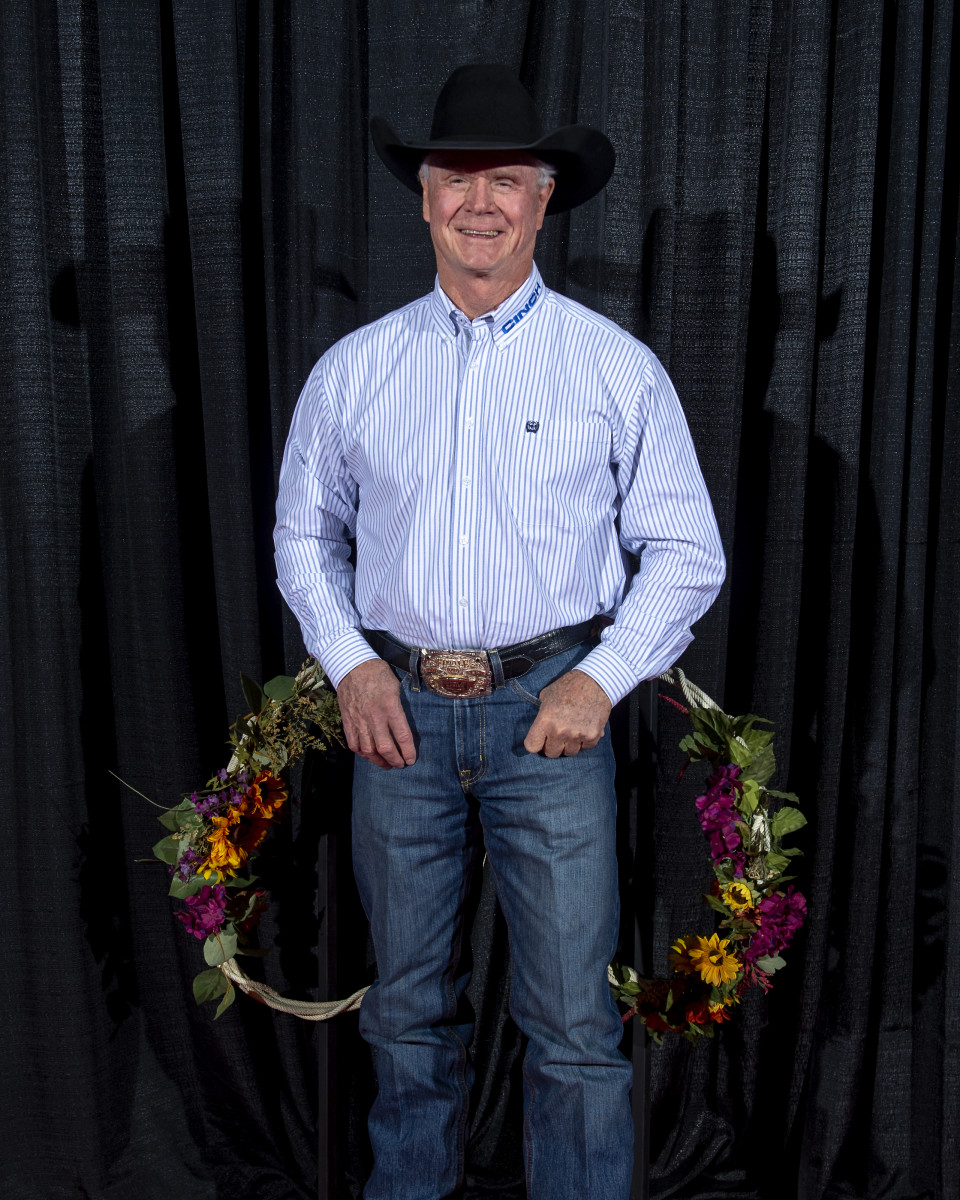
Q: What do ropers have to look forward to in the new administration with Ty Yost at the helm and a talented team of producers pushing the envelope with quality productions?
A: Ty has been in the business a long time, and he is solid. There is a changing of the guards with an outstanding young crop of producers coming online right now, and they are going to do great things. He has got plenty of good minds to help hold things together. This industry can now stand all kinds of games and producers, even the bad ones. When we got into the roping business, there was not one single producer in the United States who could make a living in the business. As I leave, I only know of six, and from a business prospective that’s not a lot of progress. It looks like competition is going to get worse as time passes. Competition has pushed commissions and stock charges low enough that the talented and creative will be able to hang. I’m glad the industry can stop obsessing about commissions. I never quit preaching on deaf ears that the losers pay the commissions and stock charges, and they always pay 100%.
Q: What are your plans for retirement, and do they involve listening to and doing anything about any gripes ropers might have going forward?
A: I won’t ever retire, I’m just getting out of the roping business. I plan on roping a lot more once they fix my shoulder. I always listened intently to ropers’ complaints and gripes and let that guide some of the changes. But I imagine I will continue giving my opinion on roping issues for a long time. Most know that if I listen, then they will have to listen to me. That is a pretty good filter.
Q: What will you miss most about this career?
A: It was magical, and we were so blessed with the way this went. But the best thing that came out of it was the social circle that was created nationally and internationally. And I think that is the beauty, I don’t have to miss it. We get to keep our social group even after we quit roping.




